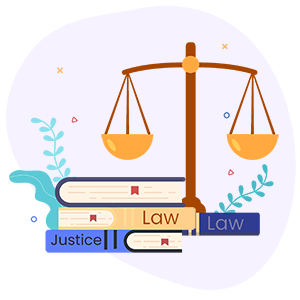DWC Physician Resources From CCWC Conference

The California Coalition on Workers’ Compensation (CCWC) held its annual conference in Anaheim last week. daisyBill was there — and so were representatives from the California Division of Workers’ Compensation (DWC), offering valuable resources for providers.
Below, we share those resources for the benefit of Qualified Medical Evaluators (QMEs), Agreed Medical Evaluators (AMEs), other doctors and providers, and the entire injured worker advocate community.
The CCWC’s “Legislative & Educational Forum” included a panel discussion in which DWC Staff Counsel Nicole Richardson shared three important items:
1. Free Course: Evaluating CA’s Injured Workers (QME)
Developed for QMEs, physicians who plan to become QMEs, and other stakeholders in the Medical-Legal process, this free 2-hour online QME course is a deep dive into the physician evaluator’s role in the process of resolving disputes between payers and injured workers.
Topics include:
- How to prepare for a Medical-Legal evaluation
- Components of a complete Medical-Legal report
- Apportionment
- The distinction between causation of permanent disability and causation of injury
- Allowable factors in determining causation of permanent disability
- Legal requirements for substantial medical evidence, and application of standards to an apportionment determination
- Anti-discrimination laws for the Medical-Legal process
- Administrative Rules re: scheduling QME appointments, adding or closing a QME office, and listing QME status as unavailable or inactive
- Timely reporting
This course provides Continuing Education (CE) credits, and is open to non-physicians. We encourage all QMEs and AMEs to take advantage of this important resource.
2. Free Course: California MTUS
California physicians who treat injured workers must adhere to the state Medical Treatment Utilization Schedule (MTUS). This free 90-minute online MTUS course explains the importance of the MTUS and its evidence-based recommendations to the compliant treatment of injured workers.
Topics include:
- Accessing MTUS guidelines
- Using MTUS guidelines to guide treatment decisions
- The MTUS Drug Formulary
- The MTUS Medical Evidence Search Sequence
- Required citations and clinical documentation to support treatment requests
- Utilization Review (UR) and Independent Medical Review (IMR) methodology
This course also provides CE credits, and is open to non-physicians.
Providers treating, evaluating, or performing UR can access MTUS Guidelines and Drug List at no cost by registering for a license at https://www.mdguidelines.com/MTUS.
3. DEU Information: Considerations in Rating of Industrial Cancer
The DWC also maintains on its website a detailed guide on industrial cancer rating by the Disability Evaluation Unit (DEU).
This includes general reminders of important information, case examples, and a checklist for physicians evaluating impairment from industrial cancer.
According to Ms. Richardson, the DWC will be releasing even more resources for Medical-Legal physicians — stay tuned.
daisyBill software, data, and expertise makes billing easier, faster, and less costly. Request a free demonstration below.
REQUEST DEMO
DaisyBill provides content as an insightful service to its readers and clients. It does not offer legal advice and cannot guarantee the accuracy or suitability of its content for a particular purpose.



.gif)
